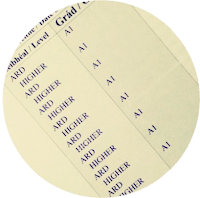Death and Engines
You may also like: Full notes on Eiléan Ní Chuilleanáin (€)
Summary: the poet wrote this around the time of her father’s death. The premise of the poem is that a life is like a plane journey where the engine cuts off and results in a wreckage.
You may also like:
Complete Guide: H1 Leaving Cert English Notes and Sample Answers
Complete Guide: H1 Leaving Cert English Notes and Sample Answers
Throughout the first half of the poem, the language is dominated with cold, impersonal and lonely imagery: “empty”, “black”, “nobody”, “burnt-out”, “frozen”, “dark”, “lonely” and “cold”.
We came down above the houses
In a stiff curve, and
At the edge of Paris airport
Saw an empty tunnel
– The back half of a plane, black
On the snow, nobody near it,
Tubular, burnt-out and frozen.
When we faced again
The snow-white runways in the dark
No sound came over
The loudspeakers except the sighs
Of the lonely pilot.
The cold of metal wings is contagious:
Soon you will need wings of your own,
Cornered in the angle where
Time and life like a knife and fork
Cross, and the lifeline in your palm
Breaks, and the curve of an aeroplane’s track
Meets the straight skyline.
The speaker is addressing someone (this is known as apostrophe in poetry): we can presume the poet is addressing her father. She says: soon you will grow wings and leave us. The lifeline of his palm will end just like the runway ends a the plane takes off, just like then the fork and knife fixate on a point to make the cut. The word “cornered” adds to the feeling of inescapable fate.
The images of relief:
Hospital pyjamas, screens round a bed
A man with a bloody face
Sitting up in bed, conversing cheerfully
Through cut lips:
These will fail you some time.
Relief? Perhaps, compared to lonely images of cold metal planes, seeing a man in a hospital is somewhat relieving, but he is clearly quite unwell – and doesn’t have long: “These will fail you some time”. There is much juxtaposition in this poem: from snow-white runways in the dark to a dying man being cheerful. This not only highlights the suffering associated with the death of a loved one but gives the reader the option to see that there is a bright side, or at least a light at the end of the tunnel.
You will find yourself alone
Accelerating down a blind
Alley, too late to stop
This is a metaphor comparing a plane or a runway and a person’s end of life. Just like a blind alley, a runway is a passage that is closed at one end. A person’s life ultimately comes to an end as well. The word blind also suggests lack of foresight: nobody knows what happens when we die. The sobering remark that we’re alone when we die.
And know how light your death is;
You will be scattered like wreckage,
The pieces every one a different shape
Will spin and lodge in the hearts
Of all who love you.
These last few lines are very dramatic. A person’s death is compared to the violent wreckage of a plane. The word “spin”, just like “too late to stop” and “accelerating” earlier on, adds momentum: death is completely unstoppable.
The fact that every piece is “a different shape” signifies that a person’s death will mean something different to everyone who loved them because of the relationship they had. This remark conjures an overwhelming image of an entire life’s worth of friendships and family ties severed through death.
The word “lodge” implies that there is little one can do to stop the death of a loved one profoundly affecting them to their very core. At the same time, it means that a piece of them will live on in our hearts even after they’re gone.
The fact that the poet uses images of knives and forks, snowy runways and planes to describe the experience means that she doesn’t accept it as being natural as all of these things are metallic and man-made. This, as well as the language portraying momentum and inescapability, show that the poet wasn’t at all ready to say goodbye to her father.


